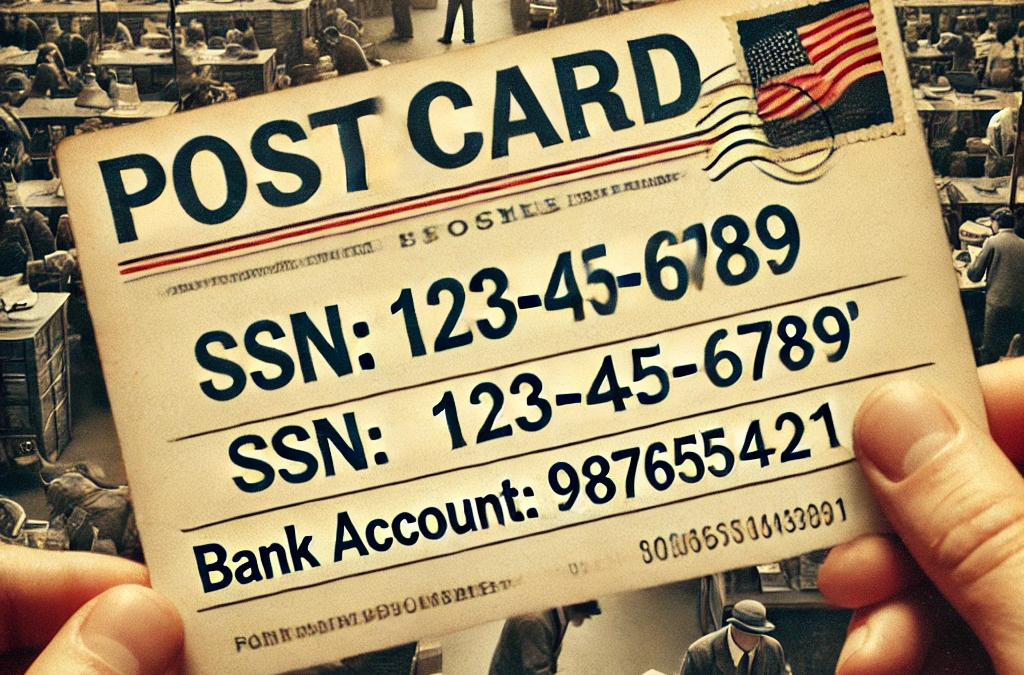If you wouldn’t trust a postcard with your sensitive info, you might want to rethink email… Here’s why.
Imagine sending a postcard from your home to a friend in some other part of the country. First, you drop off the postcard at the local post office. One postal employee collects it from the bin; another sorts it and loads it onto the truck for the airport. At the airport, a postal employee unloads the truck and sorts the mail to determine which plane all the letters go to, and then someone transfers your postcard onto the airplane. At the destination airport, this process happens in reverse. The postcard gets transported to the main post office, which sorts it and sends it to your local post office, which sorts it again. Finally, it gets put on a truck, and another postal employee delivers it to your friend’s mailbox.
If I had to guess how many people physically touched your postcard, I’d guess it’s in the hundreds.
Certainly, some of those postal employees along the way read your postcard. How easy would it be for them to take a quick picture of your postcard? You wouldn’t send your deepest secrets on a postcard, would you?
Guess what? I just described how email works!
Email is a fantastic tool that has simplified communication over the past thirty years. However, it is also a highly insecure form of communication. Unless it’s specifically encrypted with end-to-end encryption, any information transmitted in email can be read or saved by any server or computer it is bounced around to.
Unfortunately, because email is so easy to transmit information, it’s also very easy to intercept. With little more than a $400 laptop, a hacker can mimic, for example, a company’s email server and receive a copy of all the emails sent or received by that company.
I bring this up because it is very easy to send information via email. You should never send any information or attach any documents that contain the following:
– Account Numbers
– Social Security Numbers
– Dates of Birth
– PIN numbers
– Maiden Names
A bad actor can steal your money or, worse, your identity by combining almost any two of these items.
We share this with you because too many people treat email as a secure messaging tool when it’s really nothing more than a postcard.
Please do not send Almega Wealth Management any sensitive data information via unsecured email. We will never request you send account statements, tax returns, or any sensitive information via email. We will always transmit this information or request this information via either our secure myAdvisorLink portal or send it directly via FedEx.

